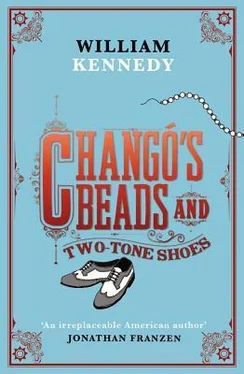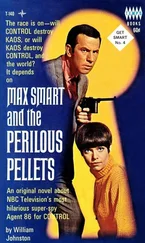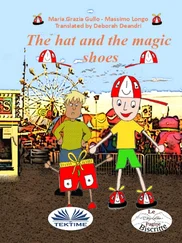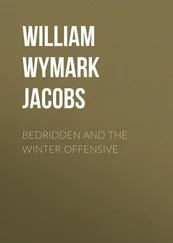So now Quinn would pass along the Comandante’s advice to Papa: take ten paces, turn, and put a bullet in Cooney’s heart, but shoot first and not into the air. Do not turn away as a gesture of contempt that invites him to shoot you in the back. Above all, don’t allow him to shoot you just because of your acute sense of irony. Papa always went to war for the macho thing — drink and fuck and fish and hunt and fight and kill and put yourself in mortal danger and prove your courage and be a hero of the just cause. Quinn is going through a little of this in the here-and-now, and Hemingway is watching from the sidelines. But it isn’t simple emulation by Quinn, who doesn’t hunt or fish, but he drinks and fucks and here he is in danger in a war zone because he has come to see the hero. He’s not doing it because he thinks he’s a coward, or because of a personality disorder, or a love affair with war such as Hemingway has had. He’s doing it because it’s a continuation of an earlier life choice: to be a witness, a writer, something to do while he’s dying that isn’t boring; and he will write about that, which seems his primary motive. He has a strong impulse to salvage history, which is so fragile, so prismatic, so easily twisted, so often lost and forgotten. Right now a full moon is rising on the revolution, rising on a day like none other and, if Quinn doesn’t report on it, who will? It will fade into the memory bank of those here, and if they survive they’ll tell what they remember, fragments of the actuality which they’ll skew with their prejudices (and so will you, Señor Quinn). Yet monitoring the whatness of the previous unknown, that seems to be Quinn’s job: I was there and then he said this, then this happened, and then they went that way — following the path of the machete, you might say.
Why bother?
Well, Quinn is young and his motives may be more opaque than they seem, but he has no interest in gaining power for himself. He’s fascinated by those who want to transform the day, the town, the nation for other than venal or megalomaniacal reasons. Is working for the just cause one of his motives? It seems to be on his agenda. He intuits that it’s worth his time to bear witness to people living for something they think is worth dying for. He also has another reason: he wants to escalate himself in his grandfather’s dead eyes.
“That peasant who helped you before he betrayed you, it seems bandits and gangsters become valuable players in a war,” Quinn said.
“I knew a few who were trying to make a revolution when it was not possible,” said Fidel, “and they were killed as gangsters. Today they would be heroes.”
“What makes a man a revolutionary?”
Fidel sat down on a rock outcropping beside the hut. “What a question.” He puffed his cigar and exhaled his answer.
“The passionate embrace of the vocation,” he said. “The obsession with changing the order of existence. Reading Martí, my early hero, the poet who organized a war. Listening to the voices from the French and American revolutions. The insights of Milton, Calvin, Luther, Thomas Paine, Montesquieu. I read Marx and I studied Roosevelt’s New Deal in prison. Also I was always awed and horrified by Cuba’s wars, and by the parade of tyrants who oppressed us. And then there is the absolutism of belief.”
“In what?”
“In the possibility of revolution.”
“So much revolution in Cuba,” Quinn said. “If it’s not erupting it’s being planned. It’s like Trotsky’s idea of permanent revolution.”
“We are still fighting the wars of ’68 and ’95 that Céspedes and Agramonte and Gómez and Maceo and Martí waged,” said Fidel. “But we have never in our history gotten near Trotsky’s idea of taking the country from the bourgeoisie and putting it into the hands of the workers. We are always fighting another hijo de la gran puta —Spanish villains like Valeriano Weyler, or our own despots, Machado and Batista. And we are always weakened or betrayed by Cubans who fear they’ll lose their wealth if there is a revolution. The cockroaches! Coño! They turned away from Céspedes because he had so many black Mambí leaders that they feared a black takeover. Many Cuban plantation owners would not give up their slaves. They had fought Spain in the past, not for independence but to annex Cuba to the U.S. as a slave state. De pinga! ”
“But when the tyrant is impregnable,” Quinn said, “the Cuban revolutionary seems to turn suicidal. Eduardo Chibás shooting himself during his own political radio speech. All those Directorio youths facing down Batista’s machine guns. José Antonio Echevarría walking toward a police car firing his pistol. And Martí charging into battle on horseback as if his leadership skills in bringing an army together were nothing compared with the damage he’d do by galloping into the blasts of Spanish guns. He needed to die. They all needed to die.”
“I would differentiate among them,” said Fidel, “and also between suicide and challenging danger. There is a moment of transcendence, and when it rises up in you, then sudden death can be a mundane fate of no consequence. I am sure José Antonio was in that sort of moment when he walked toward the police car, shooting at it. I see him as totally unafraid to fail.
“With Martí it may have been the opposite — death becoming more important than life. Distance had come between him and the two major military leaders of his war. He had been given the rank of major general, and people were also calling him ‘EI Presidente’ of Cuba Libre. But Máximo Gómez, who made him a general, said that as long as he himself lived, Martí would never be president. And Maceo, a negro general of great intelligence, told Martí to his face that he was not a fighter and not fit to be called a general.
“An unverified but enduring part of this legend is that Maceo pulled the general’s epaulets off Martí’s shoulders. If that was how it was for Martí—and we may never know the truth of this alienation — then his galloping into the Spanish guns very soon afterward can be read as a tactical stroke of recreating himself as a martyr. And revolutions need martyrs. Leaders plan the revolution, but the force grows from the tyrant’s oppression, and then come the argument and the ideas, and when you are in the season of insurrection, the momentum will overcome very great resistance. The leader sometimes realizes how minuscule he is, another energetic figure, but just a small gust of wind moving with the hurricane.”
“The palace attack,” Quinn said, “if it had succeeded would that have started the hurricane?”
“Even if they had killed Batista,” said Fidel, “it would only have been a beginning. Their backup force failed them. They did not have unity. They would have been easily defeated by the army.”
The Comandante’s tone was suddenly abrupt, edgy. He needed Batista alive for his revolution. He took two cigars from his shirt pocket.
“Do you smoke cigars, Señor Quinn?” He offered Quinn one. “A Punch Double Corona, a very old brand owned by a tobacco baron I knew in Havana, an old reactionary who made great cigars. A box of them arrived yesterday, a gift from a Santiago lawyer who supports us. I view it as a gift from the gods, perhaps from Changó, although Changó hates cigars.”
Quinn accepted the cigar and said, “I smoked my first at age eleven and spat for half an hour. In 1945 I was working a Christmas job in the post office and a mailman gave me a Headline, a sweet nickel cigar and I loved it. I graduated to ten-cent White Owls, but I know nothing of serious cigars. I’m ready to learn.”
“Cuba will teach you, and about many other things also,” Fidel said. “It has already taught you about women.”
Читать дальше












